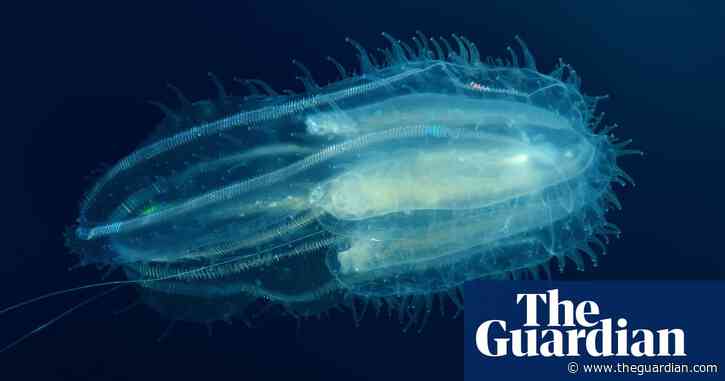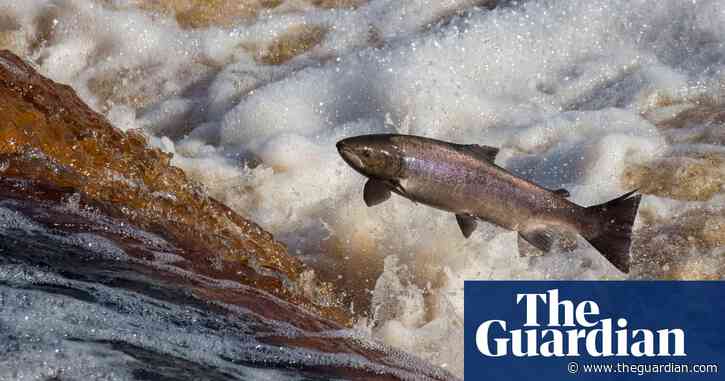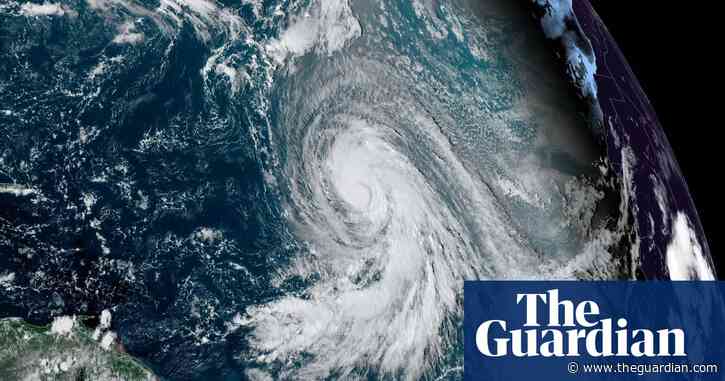✗ Close categories
 Addiction
Addiction
 Apple
Apple
 Arts
Arts
 Asia News
Asia News
 British Airways
British Airways
 Business
Business
 Cars
Cars
 Celebrity
Celebrity
 Christianity
Christianity
 Cinema, Theater & TV
Cinema, Theater & TV
 Conspiracy Theories
Conspiracy Theories
 Coronavirus
Coronavirus
 Ebola
Ebola
 Economy
Economy
 Education
Education
 Electronics
Electronics
 Entertainment
Entertainment
 Environment
Environment
 Fashion
Fashion
 Finance
Finance
 Food
Food
 Funny videos
Funny videos
 Gadgets
Gadgets
 Games
Games
 General News
General News
 Health
Health
 International Crime
International Crime
 Jobs
Jobs
 Lifestyle
Lifestyle
 Military
Military
 Mindfulness
Mindfulness
 Movies
Movies
 Music
Music
 News videos
News videos
 NewsPhoto
NewsPhoto
 Nightlife
Nightlife
 Obituaries
Obituaries
 Olympics
Olympics
 Organized Crime
Organized Crime
 Politics
Politics
 Psychology
Psychology
 Recipes
Recipes
 Royal Family
Royal Family
 Sci-Tech
Sci-Tech
 Science
Science
 Social media
Social media
 Sport
Sport
 Technology
Technology
 Television
Television
 Thames Deckway
Thames Deckway
 Traffic
Traffic
 Travel
Travel
 Trending UK
Trending UK
 UK News
UK News
 UnitedHealth Group Inc.
UnitedHealth Group Inc.
 Weather
Weather
 World News
World News
✗ Close categories
✗ Close categories
✗ Close categories
 Arsenal
Arsenal
 Aston Villa
Aston Villa
 Athletics
Athletics
 Badminton
Badminton
 Baseball
Baseball
 Basketball
Basketball
 Blackburn Rovers
Blackburn Rovers
 Blackpool
Blackpool
 Boxing
Boxing
 Burnley
Burnley
 Cardiff City
Cardiff City
 Champions League
Champions League
 Chelsea
Chelsea
 Cricket
Cricket
 Crystal Palace
Crystal Palace
 Cycling
Cycling
 Darts
Darts
 Everton
Everton
 Formula 1
Formula 1
 Formula 1 - Force India Videos
Formula 1 - Force India Videos
 Formula 1 - Infiniti Red Bull Racing Videos
Formula 1 - Infiniti Red Bull Racing Videos
 Formula 1 - Live Stream & News
Formula 1 - Live Stream & News
 Formula 1 - McLaren Videos
Formula 1 - McLaren Videos
 Formula 1 - Mercedes AMG Petronas Videos
Formula 1 - Mercedes AMG Petronas Videos
 Formula 1 - Sauber F1 Team Videos
Formula 1 - Sauber F1 Team Videos
 Formula 1 - Scuderia Ferrari Videos
Formula 1 - Scuderia Ferrari Videos
 Formula 1 - Scuderia Toro Rosso Videos
Formula 1 - Scuderia Toro Rosso Videos
 Formula 1 - Team Lotus Videos
Formula 1 - Team Lotus Videos
 Formula 1 - Williams Martini videos
Formula 1 - Williams Martini videos
 Fulham
Fulham
 Golf
Golf
 Hockey
Hockey
 Horse Racing
Horse Racing
 Hull City
Hull City
 Ice Hockey
Ice Hockey
 Leicester City
Leicester City
 Liverpool
Liverpool
 Manchester City
Manchester City
 Manchester United
Manchester United
 Middlesbrough
Middlesbrough
 Motorsport
Motorsport
 Norwich City
Norwich City
 Philadelphia Phillies
Philadelphia Phillies
 Premier League
Premier League
 Queens Park Rangers
Queens Park Rangers
 Rally
Rally
 Reading
Reading
 Rowing
Rowing
 Rugby
Rugby
 scarlets rugby
scarlets rugby
 Soccer
Soccer
 Southampton
Southampton
 Stoke City
Stoke City
 Sunderland
Sunderland
 Swansea City
Swansea City
 Swimming
Swimming
 Tennis
Tennis
 Tottenham
Tottenham
 Tour de France
Tour de France
 Volleyball
Volleyball
 WC soccer 2014
WC soccer 2014
 Welsh Rugby Union
Welsh Rugby Union
 West Ham
West Ham
 Wigan Athletic
Wigan Athletic
 Wolverhampton Wanderers
Wolverhampton Wanderers
✗ Close categories
✗ Close categories
✗ Close categories
 ...test
...test
 Aberdeen City
Aberdeen City
 Aberdeenshire
Aberdeenshire
 Antrim
Antrim
 Aylesbury Vale
Aylesbury Vale
 Barking and Dagenham
Barking and Dagenham
 Barnet
Barnet
 Barnsley
Barnsley
 Basildon
Basildon
 Bath and North East Somerset
Bath and North East Somerset
 Belfast
Belfast
 Bexley
Bexley
 Birmingham
Birmingham
 Blackburn with Darwen
Blackburn with Darwen
 Bolton
Bolton
 Bournemouth
Bournemouth
 Bradford
Bradford
 Brent
Brent
 Brighton and Hove
Brighton and Hove
 Bristol
Bristol
 Bromley
Bromley
 Bury
Bury
 Calderdale
Calderdale
 Cambridge
Cambridge
 Camden
Camden
 Cardiff
Cardiff
 Central Bedfordshire
Central Bedfordshire
 Cheshire East
Cheshire East
 Cheshire West and Chester
Cheshire West and Chester
 Cornwall
Cornwall
 County Durham
County Durham
 Coventry
Coventry
 Croydon
Croydon
 Derby
Derby
 Doncaster
Doncaster
 Dudley
Dudley
 Ealing
Ealing
 East Riding of Yorkshire
East Riding of Yorkshire
 Edinburgh
Edinburgh
 Enfield
Enfield
 Essex
Essex
 Gateshead
Gateshead
 Glasgow
Glasgow
 Greater London
Greater London
 Greenwich
Greenwich
 Hackney
Hackney
 Hammersmith and Fulham
Hammersmith and Fulham
 Haringey
Haringey
 Harrow
Harrow
 Havering
Havering
 Herefordshire
Herefordshire
 Hillingdon
Hillingdon
 Hounslow
Hounslow
 Hull
Hull
 Islington
Islington
 Kirklees
Kirklees
 Lambeth
Lambeth
 Leeds
Leeds
 Leicester
Leicester
 Lewisham
Lewisham
 Liverpool
Liverpool
 London
London
 Luton
Luton
 Manchester
Manchester
 Medway
Medway
 Merton
Merton
 Milton Keynes
Milton Keynes
 New Forest
New Forest
 Newcastle
Newcastle
 Newcastle upon Tyne
Newcastle upon Tyne
 Newham
Newham
 North Somerset
North Somerset
 North Tyneside
North Tyneside
 North West
North West
 Northampton
Northampton
 Northern Ireland
Northern Ireland
 Northumberland
Northumberland
 Nottingham
Nottingham
 Oldham
Oldham
 Oxford
Oxford
 Peterborough
Peterborough
 Plymouth
Plymouth
 Portsmouth
Portsmouth
 Redbridge
Redbridge
 Richmond upon Thames
Richmond upon Thames
 Rochdale
Rochdale
 Rotherham
Rotherham
 Salford
Salford
 Sandwell
Sandwell
 Scotland
Scotland
 Sefton
Sefton
 Sheffield
Sheffield
 Shropshire
Shropshire
 Solihull
Solihull
 South East
South East
 South Gloucestershire
South Gloucestershire
 South West
South West
 Southampton
Southampton
 Southend-on-Sea
Southend-on-Sea
 Southwark
Southwark
 St Helens
St Helens
 Stockport
Stockport
 Stockton-on-Tees
Stockton-on-Tees
 Stoke-on-Trent
Stoke-on-Trent
 Sunderland
Sunderland
 Sutton
Sutton
 Swindon
Swindon
 Tameside
Tameside
 Tower Hamlets
Tower Hamlets
 Trafford
Trafford
 Wakefield
Wakefield
 Wales
Wales
 Walsall
Walsall
 Waltham Forest
Waltham Forest
 Wandsworth
Wandsworth
 Warrington
Warrington
 West Midlands
West Midlands
 Westminster
Westminster
 Wigan
Wigan
 Wiltshire
Wiltshire
 Wirral
Wirral
 Wolverhampton
Wolverhampton
 York
York
✗ Close categories
✗ Close categories
✗ Close categories
 Harry Styles
Harry Styles
 Aaron Taylor-Johnson
Aaron Taylor-Johnson
 Adele
Adele
 Ashley Cole
Ashley Cole
 Benedict Cumberbatch
Benedict Cumberbatch
 Billie Piper
Billie Piper
 Boris Johnson
Boris Johnson
 Charlie Hunnam
Charlie Hunnam
 Cliff Richard
Cliff Richard
 David Beckham
David Beckham
 DJ 3lau
DJ 3lau
 DJ Above & Beyond
DJ Above & Beyond
 DJ Afrojack
DJ Afrojack
 DJ Alesso
DJ Alesso
 DJ Aly & Fila
DJ Aly & Fila
 DJ Andrew Rayel
DJ Andrew Rayel
 DJ Angerfist
DJ Angerfist
 DJ Armin Van Buuren
DJ Armin Van Buuren
 DJ Arty
DJ Arty
 DJ ATB
DJ ATB
 DJ Audien
DJ Audien
 DJ Avicii
DJ Avicii
 DJ Axwell
DJ Axwell
 DJ Bingo Players
DJ Bingo Players
 DJ Bl3ND
DJ Bl3ND
 DJ Blasterjaxx
DJ Blasterjaxx
 DJ Borgeous
DJ Borgeous
 DJ Borgore
DJ Borgore
 DJ Boy George
DJ Boy George
 DJ Brennan Heart
DJ Brennan Heart
 DJ Calvin Harris
DJ Calvin Harris
 DJ Carl Cox
DJ Carl Cox
 DJ Carnage
DJ Carnage
 DJ Code Black
DJ Code Black
 DJ Coone
DJ Coone
 DJ Cosmic Gate
DJ Cosmic Gate
 DJ Da Tweekaz
DJ Da Tweekaz
 DJ Dada Life
DJ Dada Life
 DJ Daft Punk
DJ Daft Punk
 DJ Dannic
DJ Dannic
 DJ Dash Berlin
DJ Dash Berlin
 DJ David Guetta
DJ David Guetta
 DJ Deadmau5
DJ Deadmau5
 DJ Deorro
DJ Deorro
 DJ Diego Miranda
DJ Diego Miranda
 DJ Dillon Francis
DJ Dillon Francis
 DJ Dimitri Vegas & Like Mike
DJ Dimitri Vegas & Like Mike
 DJ Diplo
DJ Diplo
 DJ Don Diablo
DJ Don Diablo
 DJ DVBBS
DJ DVBBS
 DJ Dyro
DJ Dyro
 DJ Eric Prydz
DJ Eric Prydz
 DJ Fedde Le Grand
DJ Fedde Le Grand
 DJ Felguk
DJ Felguk
 DJ Ferry Corsten
DJ Ferry Corsten
 DJ Firebeatz
DJ Firebeatz
 DJ Frontliner
DJ Frontliner
 DJ Gabry Ponte
DJ Gabry Ponte
 DJ Gareth Emery
DJ Gareth Emery
 DJ Hardwell
DJ Hardwell
 DJ Headhunterz
DJ Headhunterz
 DJ Heatbeat
DJ Heatbeat
 DJ Infected Mushroom
DJ Infected Mushroom
 DJ John O'Callaghan
DJ John O'Callaghan
 DJ Kaskade
DJ Kaskade
 DJ Knife Party
DJ Knife Party
 DJ Krewella
DJ Krewella
 DJ Kura
DJ Kura
 DJ Laidback Luke
DJ Laidback Luke
 DJ Madeon
DJ Madeon
 DJ MAKJ
DJ MAKJ
 DJ Markus Schulz
DJ Markus Schulz
 DJ Martin Garrix
DJ Martin Garrix
 DJ Merk & Kremont
DJ Merk & Kremont
 DJ Mike Candys
DJ Mike Candys
 DJ Nervo
DJ Nervo
 DJ Nicky Romero
DJ Nicky Romero
 DJ Noisecontrollers
DJ Noisecontrollers
 DJ Oliver Heldens
DJ Oliver Heldens
 DJ Orjan Nilsen
DJ Orjan Nilsen
 DJ Paul Van Dyk
DJ Paul Van Dyk
 DJ Porter Robinson
DJ Porter Robinson
 DJ Quentin Mosimann
DJ Quentin Mosimann
 DJ Quintino
DJ Quintino
 DJ R3hab
DJ R3hab
 DJ Radical Redemption
DJ Radical Redemption
 DJ Richie Hawtin
DJ Richie Hawtin
 DJ Sander Van Doorn
DJ Sander Van Doorn
 DJ Sebastian Ingrosso
DJ Sebastian Ingrosso
 DJ Showtek
DJ Showtek
 DJ Skrillex
DJ Skrillex
 DJ Snake
DJ Snake
 DJ Steve Angello
DJ Steve Angello
 DJ Steve Aoki
DJ Steve Aoki
 DJ Tenishia
DJ Tenishia
 DJ The Chainsmokers
DJ The Chainsmokers
 DJ Tiddey
DJ Tiddey
 DJ Tiesto
DJ Tiesto
 DJ TJR
DJ TJR
 DJ Umek
DJ Umek
 DJ Ummet Ozcan
DJ Ummet Ozcan
 DJ Vicetone
DJ Vicetone
 DJ VINAI
DJ VINAI
 DJ W&W
DJ W&W
 DJ Wildstylez
DJ Wildstylez
 DJ Wolfpack
DJ Wolfpack
 DJ Yves V
DJ Yves V
 DJ Zatox
DJ Zatox
 DJ Zedd
DJ Zedd
 DJ Zomboy
DJ Zomboy
 Emilia Clarke
Emilia Clarke
 Emily Blunt
Emily Blunt
 Gabriella Wilde
Gabriella Wilde
 Gary Lineker
Gary Lineker
 Gemma Arterton
Gemma Arterton
 Gwendoline Christie
Gwendoline Christie
 Hayley Atwell
Hayley Atwell
 Helena Bonham Carter
Helena Bonham Carter
 Imogen Poots
Imogen Poots
 Jason Statham
Jason Statham
 John Terry
John Terry
 Juno Temple
Juno Temple
 Kate Beckinsale
Kate Beckinsale
 Kate Winslet
Kate Winslet
 Keira Knightley
Keira Knightley
 Liam Payne
Liam Payne
 Lily Collins
Lily Collins
 Louis Tomlinson
Louis Tomlinson
 Niall Horan
Niall Horan
 Nicholas Hoult
Nicholas Hoult
 Paul McCartney
Paul McCartney
 Prince William
Prince William
 Ralph Fiennes
Ralph Fiennes
 Richard Branson
Richard Branson
 Robbie Williams
Robbie Williams
 Robert Pattinson
Robert Pattinson
 Rosamund Pike
Rosamund Pike
 Sophie Turner
Sophie Turner
 Theo James
Theo James
 Tom Hardy
Tom Hardy
 Tom Hiddleston
Tom Hiddleston
 Tony Blair
Tony Blair
 Tyree Cooper
Tyree Cooper
 Wayne Rooney
Wayne Rooney
 Zayn Malik
Zayn Malik
✗ Close categories
✗ Close categories
✗ Close categories
 Accountancy
Accountancy
 Administration
Administration
 Advertising
Advertising
 Aerospace
Aerospace
 Agriculture
Agriculture
 Analyst
Analyst
 Animals
Animals
 Antiques
Antiques
 Archaeology
Archaeology
 Architecture
Architecture
 Arts
Arts
 Astrology
Astrology
 Astronomy
Astronomy
 Auto News
Auto News
 Automotive
Automotive
 Aviation
Aviation
 Bakery
Bakery
 Biotechnology
Biotechnology
 Brazil
Brazil
 Cabaret
Cabaret
 Call Centre
Call Centre
 Car News
Car News
 Care
Care
 Catering
Catering
 Charities
Charities
 Chemistry
Chemistry
 Child care
Child care
 Cinema, Theater & TV
Cinema, Theater & TV
 Cleaning Industry
Cleaning Industry
 Coaching
Coaching
 Construction
Construction
 Customs
Customs
 Dairy industry
Dairy industry
 Dance & ballet
Dance & ballet
 Debt collection agencies
Debt collection agencies
 Defense
Defense
 DJ
DJ
 Economy
Economy
 Education & Training
Education & Training
 Electrical
Electrical
 Entrepreneur
Entrepreneur
 Farming & Agriculture
Farming & Agriculture
 Financial
Financial
 Firefighter
Firefighter
 Fisheries
Fisheries
 Flowers
Flowers
 FMCG
FMCG
 Food
Food
 Fruit & Vegetables
Fruit & Vegetables
 Genealogy
Genealogy
 General News
General News
 Government
Government
 Hair stylist
Hair stylist
 Hotel
Hotel
 HR & Recruitment
HR & Recruitment
 ICT
ICT
 Insurance
Insurance
 IT Executive
IT Executive
 Jobs
Jobs
 Justice
Justice
 Landscaper
Landscaper
 Lawyer
Lawyer
 Legal
Legal
 Library
Library
 Logistics
Logistics
 Marketing
Marketing
 Meat industry
Meat industry
 Medical Industry
Medical Industry
 Mining
Mining
 Nurse
Nurse
 Online Trends
Online Trends
 Pharmaceutical Industry
Pharmaceutical Industry
 Pharmacy
Pharmacy
 Physical therapy
Physical therapy
 Police
Police
 Political
Political
 PR Public relations
PR Public relations
 Production & Industry
Production & Industry
 Project Management
Project Management
 Psychology
Psychology
 Public Transport
Public Transport
 Publisher
Publisher
 Real estate
Real estate
 Research & Development
Research & Development
 Restaurant
Restaurant
 Retail
Retail
 Sales & Marketing
Sales & Marketing
 Security
Security
 SEO
SEO
 Shipping
Shipping
 Social work
Social work
 Sustainable Energy
Sustainable Energy
 Teacher
Teacher
 Telecom
Telecom
 Tourism
Tourism
 Traditional Energy
Traditional Energy
 Transport
Transport
 Travel Industry
Travel Industry
 Web Design
Web Design
✗ Close categories
✗ Close categories
-
Comb jellies fuse together when injured, study finds
via theguardian.com Research reveals ‘sea walnuts’ fuse together if they become injured, and nervous systems mergeIt might not be what the Spice Girls envisaged when they sang 2 Become 1, but scientists have found comb jellies do actually fuse together if they are injured.Researchers studying a species of the gelatinous marine invertebrates known as “sea walnuts” said they made the discovery after spotting an unusually shaped individual in the laboratory tank. Continue reading...
Research reveals ‘sea walnuts’ fuse together if they become injured, and nervous systems mergeIt might not be what the Spice Girls envisaged when they sang 2 Become 1, but scientists have found comb jellies do actually fuse together if they are injured.Researchers studying a species of the gelatinous marine invertebrates known as “sea walnuts” said they made the discovery after spotting an unusually shaped individual in the laboratory tank. Continue reading... -
Salmon numbers in England and Wales last year were lowest on record
via theguardian.com Total declared salmon catch estimated at 5,399 fish, down from 6,952 in 2022 – and 20,000 in years up to 2017Salmon numbers in England and Wales last year were the lowest on record, figures show, as pollution and climate breakdown are killing off the endangered fish.A report from the Environment Agency and Cefas shows Atlantic salmon stocks in England and Wales have dropped to their lowest level since records began in 1997. Continue reading...
Total declared salmon catch estimated at 5,399 fish, down from 6,952 in 2022 – and 20,000 in years up to 2017Salmon numbers in England and Wales last year were the lowest on record, figures show, as pollution and climate breakdown are killing off the endangered fish.A report from the Environment Agency and Cefas shows Atlantic salmon stocks in England and Wales have dropped to their lowest level since records began in 1997. Continue reading... -
Weather tracker: tail end of Hurricane Kirk to bring gusts and rain to Europe
via theguardian.com Hurricane activity is strong in Atlantic while months of below-average rainfall in South America leads to droughtHurricane Kirk is heading towards Europe. At its peak strength in the mid-Atlantic, Kirk reached category 4 status with maximum wind speeds of 145mph. As Kirk tracks north-east towards Europe, leaving the warm seas behind, it is expected to be downgraded to a category 1 hurricane by Monday.Over the next few days, Kirk will undergo extratropical transition, becoming an ex-hurricane by
Hurricane activity is strong in Atlantic while months of below-average rainfall in South America leads to droughtHurricane Kirk is heading towards Europe. At its peak strength in the mid-Atlantic, Kirk reached category 4 status with maximum wind speeds of 145mph. As Kirk tracks north-east towards Europe, leaving the warm seas behind, it is expected to be downgraded to a category 1 hurricane by Monday.Over the next few days, Kirk will undergo extratropical transition, becoming an ex-hurricane by -
Climate warning as world’s rivers dry up at fastest rate for 30 years
via theguardian.com World Meteorological Organization says water is ‘canary in the coalmine of climate change’ and calls for urgent actionRivers dried up at the highest rate in three decades in 2023, putting global water supply at risk, data has shown.Over the past five years, there have been lower-than-average river levels across the globe and reservoirs have also been low, according to the World Meteorological Organization’s (WMO) State of Global Water Resources report. Continue reading...
World Meteorological Organization says water is ‘canary in the coalmine of climate change’ and calls for urgent actionRivers dried up at the highest rate in three decades in 2023, putting global water supply at risk, data has shown.Over the past five years, there have been lower-than-average river levels across the globe and reservoirs have also been low, according to the World Meteorological Organization’s (WMO) State of Global Water Resources report. Continue reading...
Follow @UK_Environment on Twitter!

